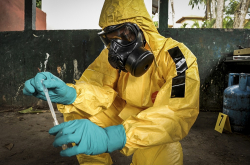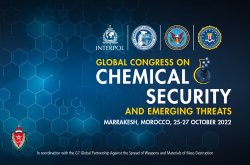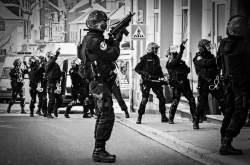Lyon, France - The four-day (28-31 October) Global Congress on Chemical Security and Emerging Threats will explore evolving threats, non-state actor procurement tactics, techniques and procedures (TTPs), recent incidents of chemical and explosives terrorism, and effective detection, prevention and mitigation techniques.

Also high on the agenda of this international event, hosted at INTERPOL’s General Secretariat headquarters in Lyon, is the illicit diversion by criminals and terrorists of chemical precursors and explosive materials from legitimate procurement.
Throughout the week, almost 200 delegates representing law enforcement, government, international and regional organizations, academia and the chemical industry will share experiences and best practices for improving security throughout the lifecycle of chemicals that are used for criminal purposes.
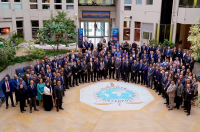
Regional security concerns and emerging technologies used by non-state actors to spread toxic chemicals and explosives will be the focus of panel discussions, as well as the identification of vulnerabilities in chemical precursor and component supply chains, and best practices for addressing them.

“With increasingly sophisticated methods and technologies used to carry out devastating atrocities, it is vital to strengthen chemical security. This means addressing the entire chemical lifecycle, from development, production, transportation and transit through to their use and disposal,” said INTERPOL Secretary General Jürgen Stock.
“Effectively addressing chemical and explosives terrorism requires a committed and global response,” added the INTERPOL Chief.

A joint-statement issued during the event by the Congress co-organizers – INTERPOL, the U.S. Federal Bureau of Investigation, the United States Department of Homeland Security and the Defense Threat Reduction Agency – underlines the importance of partnership building and of the Congress network more broadly:
“Our vision is to operationalize our combined expertise to enhance our collective ability to detect, deter, and disrupt the acquisition or use of explosive precursor chemicals and chemical weapons, which is why the holistic role of INTERPOL is so important".
By bringing together diverse expertise, the Congress is unique in its emphasis on developing symbiotic public-private relationships between law enforcement, industry experts and policymakers, and serves to support each of these actors’ ability to close the gaps exploited by criminals and terrorists to acquire precursor chemicals.

Tapping into a network of technical expertise to mitigate ongoing or new threat concerns as they arise will allow Global Congress members to continue their engagement in chemical security, and to mutually support one another well beyond the confines of the event.
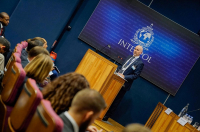
Related news
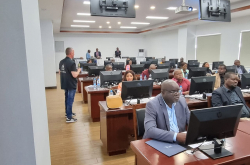
Border security threats focus of STOP operations in Africa
8 December 2023




